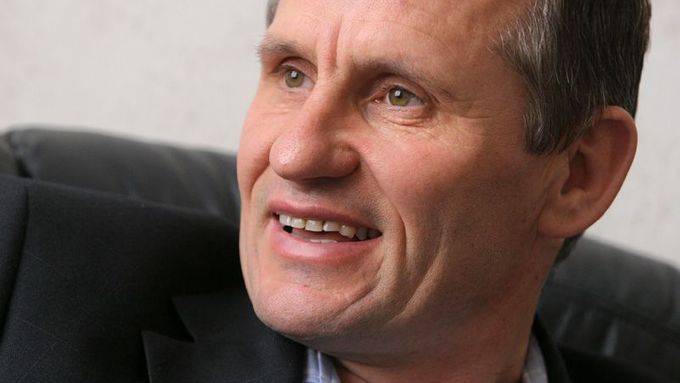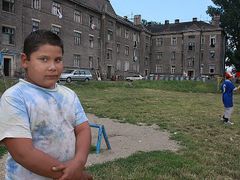Prague - Regional Development Minister and Deputy PM Jiří Čunek (Christian Democrats) has come up with a plan to dissolve ghettos in Czech towns and cities.
Čunek plans to divide its inhabitants into several groups, based on their chances to start a new life outside of a ghetto.
Minister Čunek, who has been accused of racism in the past and investigated for alleged corruption, described in his draft proposal how the segregation of Roma will look like. People will be selected based on their employment situation, childcare and the payment of rent.
"I do not want to talk about detailed conditions for this, it is still a draft," Deputy PM Čunek said.
Read more: Čunek proposes revolutionary plan to tackle ghettos
Roma integration on his mind
This is Čunek´s fourth document on Roma integration. But none of the previous ones have proved to be successful.
The Czech Republic has been criticized for discrimination and segregation of its Roma population by the EU and by the US government in its annual country report.
Social workers, schools and nonprofit organizations will be preparing social demographic research based on which people will be divided into the three groups. The plan is still in formative stages, though, so major changes can be expected.
How to divide
Čunek wants to divide families into independent, dependent and irresponsible. The chart below describes the criteria.
Families that will be categorized as Group 1 will get better housing and a chance to live within the majority society and a stable job under the condition that they will maintain their customs and behavior. Perspective crisis situations will be resolved by social workers.
Find out more: US criticizes Jiří Čunek for Roma evictions, corruption
Families in Group 2 will remain in their ghetto, social workers will however work with them to achieve greater independence. They will help them find a job, solve the possible debt situations and motivate them to educate their children. They will be encouraged to limit their relations with the wider family.
People in Group 3 who, according to an assesment by social workers, do not want to improve their lives will be moved into dormitories with strict rules and ongoing monitoring.
Their motivation should be the desire to achieve the same as their former, more successful neighbors. They will be allowed to stay in the dormitory as long as they abstain from alcohol and pay rent on time. Separate housing for women and men would also be an option.
Against politicians
Roma organizations do not approve of the draft which is based on a selection. "We see it as yet another clero-fascist behavior of Deputy Prime Minister," said Ivan Veselý, Deputy Leader of the Government Council for Roma Issues.
Nonprofit organizations and social workers are cautious with their comments. According to them, the fact that the state at least sees and acknowledges differences among the ghetto population is a positive development.
| Criteria for selection of people living in ghettos |
| Group 1 | Group 2 | Group 3 | |
| Employment | Mother and father have a full-time jobs, they do not abuse welfare money | Mother or father have been listed as unemployed for more than half a year, they occasionally abuse the welfare system | Unmotivated and long-term unemployed, abusing welfare system and money |
| Housing | Family has paid its rent regularly in the past year | Family does not pay rent on time, their debts for rent are lower than half of all rents that were to be paid since the beginning of the lease | Debts for the rent are higher than a half of all rents that were to be paid since the beginning of the lease. Rent is not paid. |
| Education | Children attend kindergarten and school after completing elementary and compulsory education | Children do not attend kindergarten. They attend school regularly but do not continue with their studies after the nine years of compulsory education | Children are not encouraged to study by their family, they do not attend school regularly. |
Ghettos in the Czech Republic
Based on studies from 2006, there are approximately 300 ghettos in the country, which is much more ever before. They have between 60,000 to 80,000 inhabitants, who are members of about 20,000 families. That is 30 to 40 percent of the entire Roma population in the Czech Republic.
Read more: Slum-like conditions for evicted Roma families
Čunek believes the ghetto problem would be solved within ten years. An important step will be to come up with a specific strategy for individual communities. That way the integration funds could be used for individual projects.
The concept was drafted by a work group of social workers, mainly Romani social workers. The final version will be decided by the Social Affairs, Interior, Education, Health and Finance Ministries. First projects will start on September 16.







